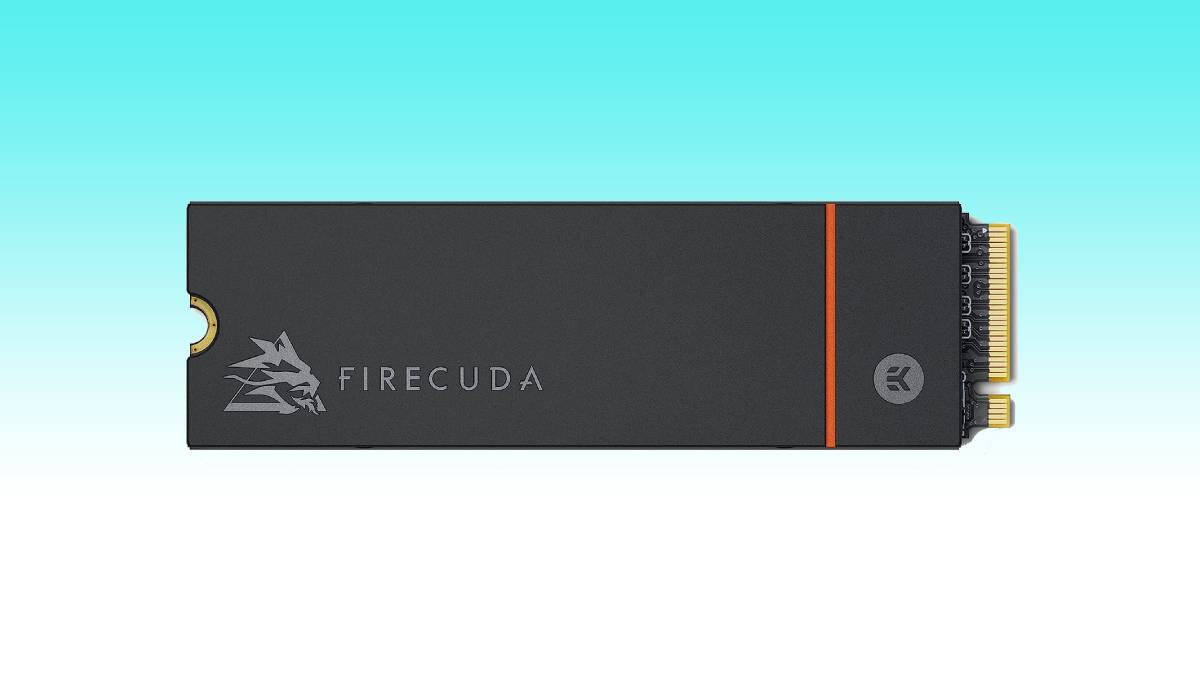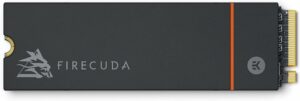Best SSD for PS5 in 2025 – our top NVMe picks

Table of Contents
If you are looking for the best SSD for PS5, then we have you covered right here.
Now, ideally, you’d want your PS5 SSD to be compatible with the console, offer high read and write speeds, and have sufficient storage. As gaming is a demanding task, most SSDs for consoles come with a heatsink, which helps keep the temperature and performance optimal.
Most SSDs for PS5 are easy to install – so all you have to do is insert the drive and get started. Looking at the options available on the market, you will mostly come across internal SSDs for the console, as they deliver better speeds. However, we also have some of the best external SSDs that would work with gaming consoles.
With this in mind, we have researched and listed some of the best SSDs for PlayStation 5 that you can consider getting for your console.
Products at a Glance
How we picked
For this guide, we have looked at several SSDs from different brands that work with PS5 and then shortlisted the ones we thought were the best. The SSDs have been selected based on specs like speed, compatibility, storage space, and more. Further, we are always looking to update our lists with new products, so check back for newer details.
Product Reviews
- High read/write speeds
- PCIe Gen 4 interface
- Officially licensed by PS5
- Expensive
If you are looking for the best SSD overall, then you should check out the WD Black SN850 drive, which we think is one of the best gaming SSDs.
To start with, this SSD by Western Digital is one of the officially licensed storage expansions for PlayStation 5, so you don’t have to worry about compatibility. Plus, you can plug this drive into your setup and play the games directly from it – so all you have to do is install it, and you’re good to go.
The SSD has a PCIe Gen 4 interface and offers a high speed of up to 7,300MB/s, which should offer less loading times, faster app launches, and overall faster performance.
For this guide, we have selected the 1TB variant, which we think should be sufficient for most users. However, depending on your budget and requirements, you can also check out 2TB and 4TB variants.
Another important feature here is the integrated heatsink, which fits right into the M.2 slot. Considering that gaming can be a demanding task, this heatsink should help maintain optimal temperature and performance.
- High read/write speeds
- Budget-friendly
- Simple installation
- No heatsink
If you are looking for a budget SSD for PS5, then you should check out the XPG 1TB GAMMIX S70 Blade drive. Much like some of the best budget SSDs, this one too, offers a clean performance without any bells and whistles.
Just like other SSDs on this list, this drive works well with PlayStation 5 (firmware 21.02-04.00.00.42 or higher), so compatibility should not be a problem. The M.2 2280 drive is simple to set up and does not need any enclosure – all you need to do is directly install it and get it going.
The SSD comes with a PCIe Gen 4 interface, which can give it high speeds of up to 6100MB/s on PS5 and up to 7400MB/s on laptop and PC. Further, as this SSD is backward compatible with PCIe 3.0, you get read and write speeds of 3400 MB/s and 3000 MB/s.
Here, we have chosen the 1TB variant, which should be sufficient for most users. However, depending on your requirements, you can look at the 512GB, 2TB, and 4TB variants.
- High read/write speeds
- Rescue Data Recovery Services
- Great heatsink
- Expensive
If you want the best SSD for PS5 overall, then you should check out the Seagate FireCuda 530 drive.
To start with, the M.2 drive meets all the performance and dimensions requirements to be compatible with PS5 – so you don’t have to worry about compatibility.
As this drive has a PCIe 4.0 interface, it is much faster than PCIe 3.0 and SATA SSDs. To be more specific, the FireCuda SSD delivers a speed of up to 7300MB/s, which should give faster app launches, quick loading, and overall faster performance on your PS5.
For this guide, we have chosen the model that comes with a low-profile heatsink designed by EKWB heatsink, so you can expect optimal performance and temperatures.
Another noteworthy feature is the addition of the Rescue Data Recovery Services (3 years), which should help you recover data in case of water damage and natural disasters.
- High read/write speeds
- Built-in heatsink for thermal management
- RGB lights
- Expensive
If you want to get a fast SSD for your PS5, then you should check out the Samsung 990 Pro, which we think is one of the best NVMe SSDs out there.
The SSD comes with a PCIe 4.0 interface, which makes this drive faster than the previous iteration – the Samsung 980 Pro. As far as speeds go, you get up to 7450 MB/s of read speed and up to 6900 MB/s of write speed, which should give you a powerful performance while gaming.
Further, the Samsung SSD comes with a nickel-coated high-end controller that delivers thermal control, which promises to maintain optimal temperature. Along with this, the heatsink has RGB lights, which should add flair to your gaming setup.
To make it easier for you to manage storage on your drive and optimize performance, you can make use of the Samsung Magician software. This tool gives you insights on drive health, protects your data, and even installs updates for your SSD.
- High read/write speeds
- Great heatsink
- Backward compatible
- Limited storage options
If you are looking for an SSD for PS5 that offers an excellent heatsink feature, then you should check out the Corsair MP600 Pro LPX drive.
To start with, this NVMe SSD has a PCIe Gen4 interface, which means you get faster read and write speeds compared to PCIe Gen 3.0. To be specific, the SSD offers up to 7,100MB/s read speed and 6,800MB/s write speed, which promises to load large game files faster.
Further, the console comes with a pre-installed low-profile aluminum heat spreader that promises to reduce heat and sustain high performance – so you can expect an optimized performance.
For this guide, we have picked the 2TB variant, which we think should be enough for hardcore games that have a huge collection. However, depending on your budget and requirements, you can look at other options with different storage capacities.
How to pick the best SSD for PlayStation 5
Before you put a new SSD into your cart, here are a few things to consider –
Compatibility
To start with, you need to ensure that the SSD is compatible with PS5 and would act as a storage expansion for the console. Usually, whether an SSD is compatible with the console or not is specified in the product description, so you shouldn’t be too worried about compatibility.
Speed
As mentioned earlier, most options available for PS5 are internal SSDs, which tend to have faster read and write speeds than external drives. Considering that you are going for an internal drive with a PCIe 4.0 interface, you can expect speeds of around 7,000 MB/s
Storage capacity
If you browse through the options available on the market, you will see that the storage capacities range from 500GB to 4TB and more. As you will be looking to store games on the drive, we’d suggest going for at least 1TB of storage or more, depending on your games collection.
What's the best SSD format for PS5?
For PS5 users looking to upgrade their console’s storage, the ideal SSD format is a Gen 4.0 NVMe model. Sony specifies that the SSD should have a capacity ranging between 250GB and 4TB. Crucially, it must offer a minimum sequential read speed of 5,500 MB/s.
Our Verdict
If you want the best SSD for PS5, then we think that the WD Black SN850 is a great pick. The SSD has been officially licensed for the PlayStation 5, which rules out any complicated compatibility issues. Plus, it has a PCIe Gen 4 interface and offers speeds of up to 7,300MB/s, which means faster loading times, faster app launches, and overall faster performance. And with the integrated heatsink, you can expect optimal temperature and performance






